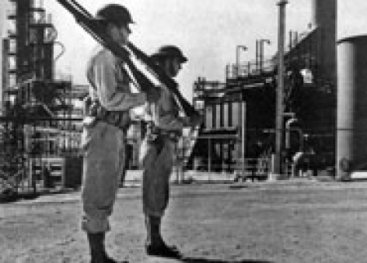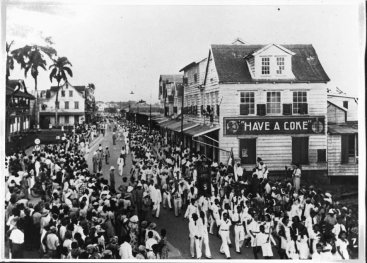
Political independance
Traditionally, most leaders in the West come from the Netherlands. During the war, Surinamese, Antilleans and Arubans take over key positions themselves. Their confidence grows and they desire a greater level of self-government.
This is boosted by the Atlantic Charter (14 August 1941), in which the USA and Britain recognise people’s right to self-government. On 7 December 1942, Queen Wilhelmina of the Netherlands in a radio address promises the colonies more independence after the war.

‘Boss in our own home’
In 1943, the Union Surinam is founded in Surinam, with the motto ‘boss in our own home’. Members of the first political party in the Antilles use the same slogan in 1944. They want more control. But the governors hold all the power because of the war.
Kielstra has Surinamese politician arrested
The self-willed governor of Surinam, J.C. Kielstra, does not give in an inch to the new opposition movement. The Surinamese politician Wim Bos Verschuur protests the situation in a letter to Queen Wilhelmina. Kielstra has him arrested, infuriating many Surinamese people. The political turmoil is eased when Kielstra is replaced by the less authoritarian governor J.C. Brons.


